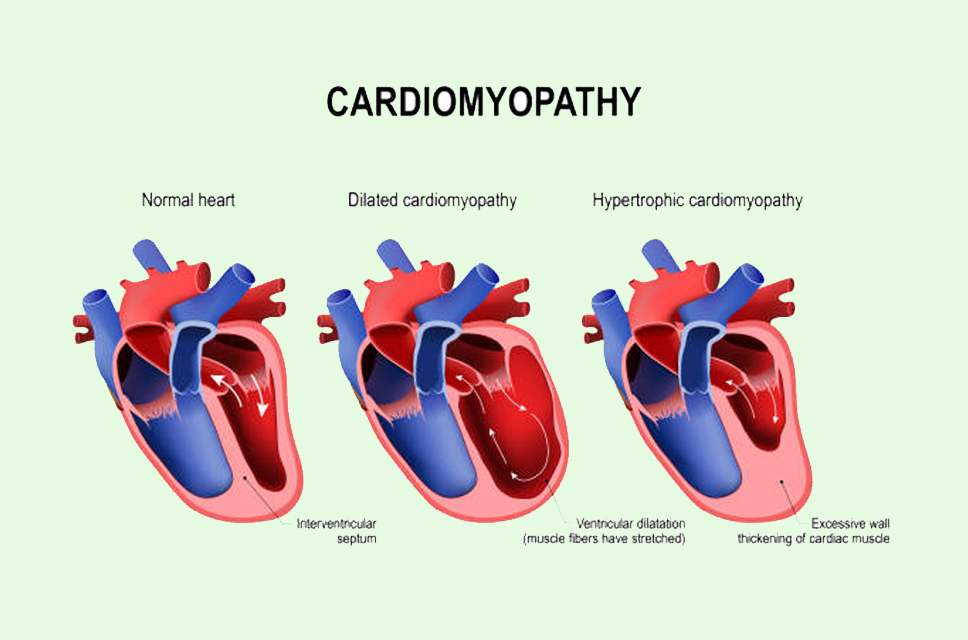Hereditary cardiomyopathy refers to a group of heart muscle diseases that are passed down through families via genetic mutations. These conditions affect the structure and function of the heart, making it difficult for the heart to pump blood efficiently. The most common types of hereditary cardiomyopathies include hypertrophic cardiomyopathy (HCM), dilated cardiomyopathy (DCM), arrhythmogenic cardiomyopathy (ACM), and restrictive cardiomyopathy (RCM).
Symptoms typically include shortness of breath, chest pain, fainting, sudden cardiac death (especially in young athletes), fatigue, swelling of the legs, ankles, and feet, heart failure and arrhythmias (irregular heart beat), palpitations.
Genetic Inheritance Patterns
Most hereditary cardiomyopathies are inherited in an autosomal dominant pattern, meaning:
- A person needs only one copy of the mutated gene to develop the condition.
- Each child of an affected parent has a 50% chance of inheriting the mutation.
Genetic Testing and Diagnosis
- Genetic testing can help identify specific mutations that cause hereditary cardiomyopathy, especially in individuals with a family history of sudden cardiac death or unexplained heart problems.
- Testing is also useful for cascade screening—testing family members of an affected person to determine if they carry the genetic mutation.
- Genetic counselling is often recommended to understand the risks of transmission and to discuss options for managing the condition.
Management and Treatment
- Medications: Beta-blockers, calcium channel blockers, and anti-arrhythmic drugs can be used to manage symptoms and reduce the risk of arrhythmias.
- Implantable Cardioverter Defibrillators (ICDs): In some patients, ICDs are recommended to prevent sudden cardiac death due to life-threatening arrhythmias.
- Lifestyle Modifications: Limiting intense physical activities to reduce the risk of sudden cardiac events.
- Heart Transplant: In severe cases, where heart function is significantly compromised, heart transplant may be necessary.
Conclusion
Hereditary cardiomyopathies are often complex conditions with varying symptoms and risks, but genetic testing has significantly improved our ability to diagnose and manage these diseases. Early detection, especially in individuals with a family history of cardiomyopathy, can be life-saving and help tailor treatment plans to reduce risks. Genetic testing involves a blood test. If you or your loved ones have a personal or family history of cardiomyopathy, please discuss with your doctor on whether genetic testing is suitable for you.


